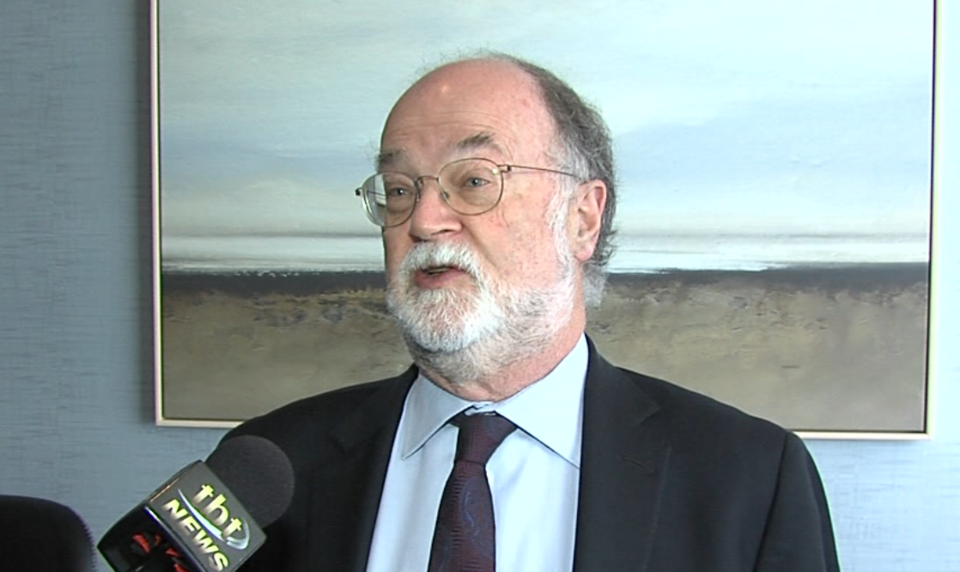THUNDER BAY – The outside administrator appointed to oversee the embattled Thunder Bay Police Service says its governance structure may need an overhaul.
Administrator Malcolm Mercer, appointed by the Ontario Civilian Police Commission (OCPC) in April amid dysfunction on the Thunder Bay Police Services Board, made the comments in a report filed with the OCPC on Aug. 19, and released publicly on Thursday.
Reviewing the recent history of the board, Mercer found “failures of governance, significant distractions, and a very concerning failure to advance the recommendations that were made” by Senator Murray Sinclair in a 2018 report for the OCPC into local police governance.
Many of those recommendations centre around the need to rebuild trust with Indigenous people and groups, given findings of systemic racism against Indigenous people within the force, and calls to disband the TBPS by some Indigenous leaders.
Mercer highlighted a number of recommendations that remain incomplete three-and-a-half years after Sinclair’s report.
Those include recommendations to develop policies governing the relationship between the board the police chief, to engage with Indigenous groups, adopt an anti-racism strategy, and provide greater transparency, for example by posting draft policies online.
The police services board adopted a work plan in the fall of 2020 to meet the OCPC recommendations, but there is little record of progress since then, Mercer found.
The COVID-19 pandemic disrupted the board’s ability to complete some recommendations, but Mercer concluded divisions on the board – as well as limited time and resources for board members – were the driving factor.
In his report, he tied many of those tensions back to a dispute over the TBPS system for promotion of officers, which was changed by Hauth in 2019 and led to the promotion of Sgt. Michael Dimini.
The change sparked allegations of favouritism by Hauth from the police association, Mercer said.
He suggested the issue may have created tensions between board member Georjann Morriseau and her colleagues. Morriseau has since levelled numerous human rights complaints against the board and its members over separate incidents.
Morriseau also recently filed a complaint against Mercer himself, alleging he had dismissed her allegations as a "personality dispute."
During collective bargaining in 2020, Mercer concluded Morriseau, one of two bargaining committee representatives for the board along with Thomas Lockwood, ultimately sought to resolve the police association’s concerns by signing a memorandum of understanding (MOU) about promotions.
However, Mercer suggests she signed the agreement without board approval, and without informing Hauth, adding she had been seen to have a close relationship with the police association.
Morriseau and Lockwood remember the episode differently, he reported – she claims Lockwood gave his approval to the MOU, while he claims he expressed the need for it to be approved by the board.
The board later took action to void the MOU under a clause in the agreement, with Morriseau dissenting.
Mercer suggested that incident set the tone for later conflict between Morriseau and others in police leadership, with Hauth now facing Police Services Act charges for her role in handling an investigation the TBPS launched into Morriseau.
However, he concluded the tensions on the board were only part of the problem.
“I do not think that simply appointing new board members and new police leadership will be sufficient,” he wrote. “While I conclude that the board did not implement recommendations, policies and procedures as they should have done, I also conclude that the board was not equipped to do all that was asked of it.”
“A small part-time Board with part-time support will not accomplish what is needed in Thunder Bay. If all that happens is the appointment of new people, there is the very real prospect of yet another failure to advance crucial goals.”
Mercer concluded by promising to report further on the matters.
Neither Mercer nor the OCPC were available for interviews on the report.
With files from Jonathan Wilson, TBT News.
